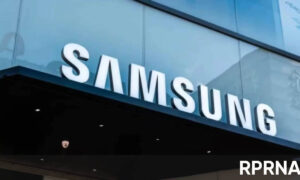Last week, Snap posted a disappointing quarterly earnings report, sending shares tumbling 28% to their lowest point since early 2019. For now, investors are turning their attention to Facebook parent Meta and Google parent Alphabet, as well as giants like Twitter, Pinterest, Amazon, and Microsoft.
The U.S. Internet and mobile advertising industries are under serious skepticism these days. Shares of Meta, which are down more than 60% this year, are expected to report a second straight quarter of lower revenue. Alphabet shares are down 30% this year.
Join us on Telegram
The company reported a single-digit increase in its revenue outlook. This would be the weakest period for Google’s parent company’s growth since 2013, barring a quarter at the start of the pandemic.
The economic downturn and recession fears have led many marketers to rein in spending. At the same time, Apple’s privacy policy adjustments since last year still affect platforms that used to rely on user data to deliver targeted ads, especially Snap and Facebook.
UBS analysts said in a research note last week: “Sentiment in the online advertising space has softened recently as rumors of budget cuts have grown and advertisers have reined in budgets for the fourth quarter increase. Looking ahead to 2023, We believe that planning amid this level of macro uncertainty will result in lower-than-average growth even if the macro economy does not actually deteriorate significantly.”
 UBS also said it would “reduce forecasts and target prices across the online advertising industry”. The analysts said that through discussions with digital advertising marketing agencies, they found that “many corporate advertising directors are cutting budgets, especially among those smaller advertisers”.
UBS also said it would “reduce forecasts and target prices across the online advertising industry”. The analysts said that through discussions with digital advertising marketing agencies, they found that “many corporate advertising directors are cutting budgets, especially among those smaller advertisers”.
In Snap’s research note on Thursday, the company said quarterly results were adversely affected by a combination of factors including platform adjustments, economic challenges, and competition. For the second quarter in a row, Snap said it would not provide an outlook for the next quarter because of the difficulty in predicting future economic trends.
“We found that advertising partners in many industries are reducing their marketing budgets, especially in the face of an unfavorable operating environment, cost pressures due to inflation, and rising capital costs,” Snap said.
If the third quarter is similar to the second, Snap’s poor earnings could mean headwinds for the industry as a whole. In July, Meta, Twitter, Pinterest, and Google all reported weaker-than-expected earnings after Snap’s earnings missed expectations.
Investors had already begun to advance operations last week. Shares of Pinterest fell more than 6% on Friday after Snap’s earnings report, Twitter fell nearly 5% and Meta fell more than 1%. Alphabet shares rose more than 1 percent, but still underperformed the tech-heavy Nasdaq, which rose 2.3 percent.
However, some analysts believe that Snap’s poor performance may not reflect the overall online advertising market. Meta and Alphabet “have built a multifaceted digital ecosystem” that far exceeds the smaller Snap. As a result, these large companies are “more resilient to weakness in digital ad spending.”
One bright spot in the online advertising space may come from Amazon. Amazon’s digital advertising business grew 18% in the second quarter, the most of any major company in the industry. While retailers may cut back on advertising through Facebook and other platforms, Amazon is a stickier platform for them because it’s the primary channel for consumers to shop. To make their brands more visible on Amazon and attract consumers, they have to pay the platform’s fees.
Still, even Amazon’s core business has suffered this year. Amazon’s growth has slowed significantly compared to its boom years during the pandemic. Amazon’s total revenue growth has been stuck in the single digits for three consecutive quarters. Shares of Amazon have fallen 28% this year.
By Thursday’s earnings report from Amazon and big tech companies, investors should have a clearer picture of trends in the online advertising market and just how badly advertisers’ budgets have contracted during this holiday season.
















